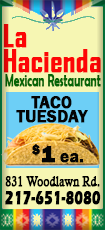|
 "Ask Your Mama: 12 Moods for Jazz" is Hughes' homage
in verse and music to the struggle for artistic and social freedom
at home and abroad at the beginning of the 1960s. It is a 12-part
epic poem which Hughes scored with musical cues drawn from blues and
Dixieland, gospel songs, boogie woogie, bebop, progressive jazz,
Latin "cha cha," Afro-Cuban mambo music, German lieder, Jewish
liturgy, West Indian calypso and African drumming – a creative
masterwork left unperformed at his death. "Ask Your Mama: 12 Moods for Jazz" is Hughes' homage
in verse and music to the struggle for artistic and social freedom
at home and abroad at the beginning of the 1960s. It is a 12-part
epic poem which Hughes scored with musical cues drawn from blues and
Dixieland, gospel songs, boogie woogie, bebop, progressive jazz,
Latin "cha cha," Afro-Cuban mambo music, German lieder, Jewish
liturgy, West Indian calypso and African drumming – a creative
masterwork left unperformed at his death.
Originally, Hughes created "Ask Your Mama" in the aftermath of his
participation as an official for the five-day Newport Jazz Festival
of July 1960, where he shared the stage with such luminaries as
Louis Armstrong, Dizzy Gillespie, Horace Silver, Dakota Staton,
Oscar Peterson, Otis Spann, Ray Charles, and Muddy Waters. The
musical scoring was designed to serve not as mere background but to
forge a conversation and a commentary with the music. Though Hughes
originally intended to collaborate with Charles Mingus, and then
Randy Weston, on the performance of this masterwork, it remained
only in the planning stages when Langston Hughes dies in 1967. Its
recovery now in word, music and image provides a galvanizing
experience for audiences everywhere.

Utilizing engaging videography, this concert performance links the
words and music of Hughes' poetry to topical images of "Ask Your
Mama's" people, places, events and to the visual artists Langston
Hughes admired and/or collaborated with most closely over the course
of his career including the African-inspired mural designs and
cubist geometries of Aaron Douglas, the blues and jazz-inspired
collages of Romare Bearden, the macabre grotesques of Meta Warrick
Fuller, the rhythmic sculptural figurines, heads, and bas reliefs of
Richmond Barthe, and the color-blocked cityscapes and black history
series of Palmer Hayden and Jacob Lawrence. Together the words,
sounds and images recreate a magical moment in cultural history,
which bridges the Harlem renaissance, the post-World War II beat
writers' coffeehouse jazz poetry world and the looming Black Arts
performance explosion of the 1960s.
[to top of second column] |

The performance is brought to life by the extraordinary talents
of the Ron McCurdy Quartet. Dr. Ronald C. McCurdy is professor of music in the
Thornton School of Music at the University of Southern California (USC) and is
past president of the International Association for Jazz Education (IAJE). Prior
to his appointment at USC, he served as director of the Thelonious Monk
Institute of Jazz at USC. He has released two CDs. The first one titled, "Once
Again for the First Time" on the INNOVA label and the most recent CD titled
"April In Paris" with his vocal funk group, The Ron McCurdy Collective. He is
co-author of a vocal jazz improvisation series titled "Approaching the
Standards," published by Warner Bros.
Dr. McCurdy is the director of the National Grammy Vocal Jazz Ensemble and
combo, and also serves as director of the Walt Disney All-American College Band
in Anaheim, Calif.
Dr. McCurdy has performed with a host of legendary jazz artists, including
Wynton Marsalis, Joe Williams, Rosemary Clooney, Terence Blanchard, Leslie
Uggams, Arturo Sandoval, Diane Schuur, Ramsey Lewis, Mercer Ellington, Dr. Billy
Taylor, Maynard Ferguson, Lionel Hampton and Dianne Reeves. He is a performing
artist for the Yamaha International Corporation.
Tickets may be purchased at the Kirkland Fine Arts Center Ticket Office, by
phone at 217.424.6318 or online at kirklandfinearts.com. A $2.50 fee will be
charged for credit card purchases. This is a per transaction fee, not per
ticket, and applies to online and Ticket Office orders. Kirkland Ticket Office
hours are Monday – Friday from 10 a.m. – 5 p.m.
For more information about Kirkland Fine Arts Center, please visit
kirklandfinearts.com. Events at Kirkland Fine Arts Center are partially
supported by a grant from the Illinois Arts Council, a state agency, and the
Midwest Arts Council.
[Millikin University Media Relations]
 |